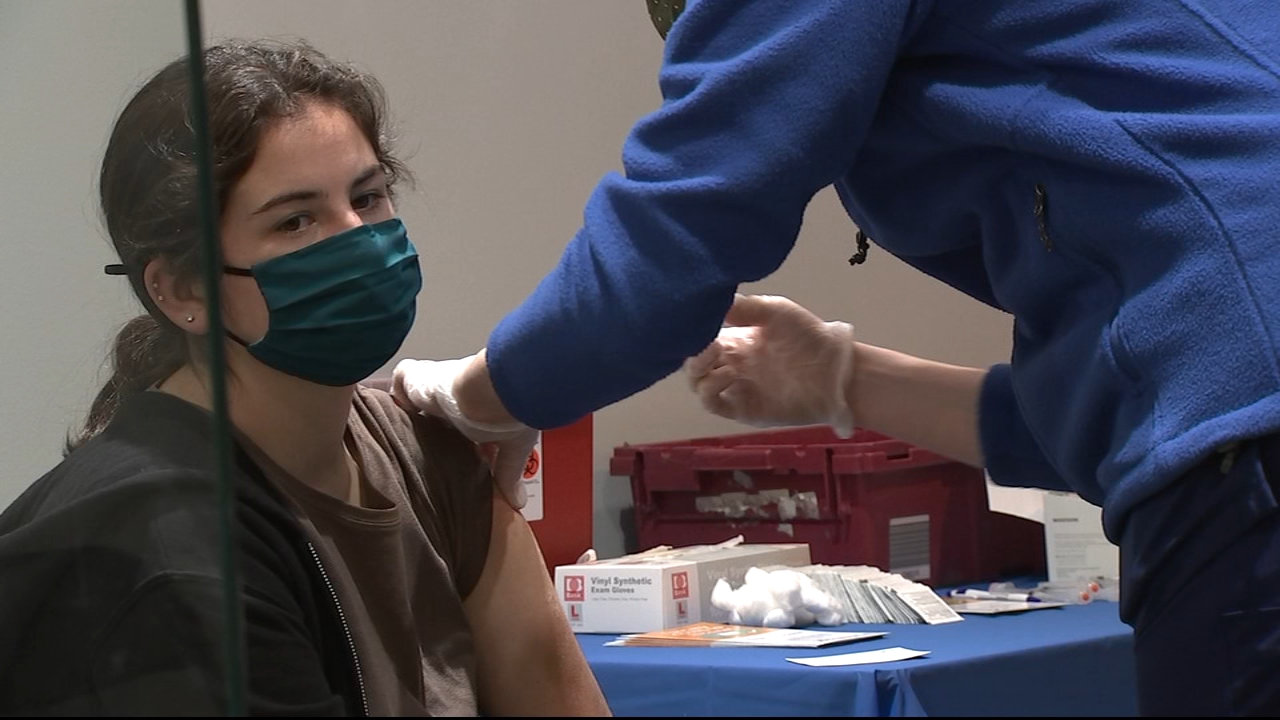How to convince someone who is hesitant to get the COVID-19 vaccine

LOS ANGELES (KABC) -- As new infections and hospital admissions climb at an alarming rate among the unvaccinated, how do you talk to a loved one or friend who doesn't want a COVID-19 vaccine? Experts say it's not so much about talking.
"I am unvaccinated," Karen Perdue of Tujunga says.
When Eyewitness News first met Perdue, she wasn't asked her about her vaccination status. But after she saw ABC7 reporter Denise Dador was willing to listen, she explained her concerns about the vaccine.
"It is an experimental drug or vaccine," she said.
All of the COVID-19 vaccines went through extensive clinical trials. The U.S. Food and Drug Administration has authorized them for emergency use. Full approval is expected within the next few months, and 343 million shots have been administered in the U.S. And while extremely rare adverse reactions can occur, the data shows the vaccines are overwhelmingly safe and effective. Still many have reservations.

"There's a lot of different reasons that people hold off getting vaccinated," said Dr. Itai Danovitch, chair of Cedars-Sinai's department of psychiatry and behavioral neurosciences.
He said whether people are skeptical of the vaccine or question where the information comes from, there's only one way to approach people on the fence.
"Listening to people with a sense of humility, being curious about what their reasons are and what their concerns are is much more likely to put them in a position where they themselves are open to gaining information," he said.
Danovitch says unless they ask and are open to discussion, don't offer to educate.
"You're in a much better place to talk about how you feel and why you do the things you do, and then ask them about their own perspective," Danovith said. "It's better than giving them education that they aren't necessarily asking for."
With someone close, express your concerns for their well-being and how not getting vaccinated impacts you and everyone around you. And if that doesn't work, Danovitch said it's OK to set boundaries.
"The appropriate thing to do might be to say 'Currently, I'm concerned about my own risks. And it's important that I don't see you until you're vaccinated as well. If we do see each other, it should be under specific circumstances, like outside wearing masks," he suggested.
"I just think that everyone should take precautions," Perdue said.
The most important thing is to keep the conversation going.
"We know that when people feel heard, they're much more likely to be open to listening," Danovitch said. "So we start from a place of listening and then hope that that happens in both directions."









